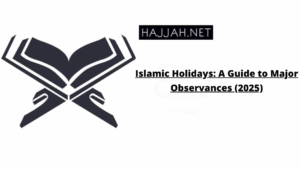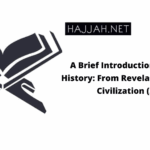Surah Al-Waqi’ah, the 56th chapter of the Holy Quran, is a powerful Surah primarily known for its vivid descriptions of the Day of Judgment (the “Inevitable Event” from which it takes its name), the differing fates of souls in the Hereafter, and the immense power of Allah SWT (God). Alongside its profound spiritual reminders, Surah Al-Waqi’ah holds a special significance for many Muslims due to traditions linking its recitation to benefits concerning Rizq (sustenance, provision, wealth) and protection from poverty. This article explores this particular virtue, the basis for this belief within Islamic tradition, and the broader understanding of seeking sustenance in Islam.
What is Surah Al-Waqi’ah About? (Brief Context)
Before focusing on Rizq, it’s helpful to understand the Surah’s main themes. It powerfully contrasts the rewards awaiting the righteous in Jannah (Paradise) – described as the “Companions of the Right” – with the punishments facing the deniers in Jahannam (Hellfire) – the “Companions of the Left.” It emphasizes Allah’s absolute power over creation and resurrection, reminding humanity of the temporary nature of this world and the certainty of the Hereafter. These themes inherently encourage piety, gratitude, and reliance on Allah.
The Claimed Benefit: Protection from Poverty and Increase in Rizq
A widely held belief among Muslims, passed down through generations and based on specific narrations, is that regularly reciting Surah Al-Waqi’ah can serve as a safeguard against poverty and attract blessings in one’s livelihood.
Also Read
- The Core Belief: The tradition suggests that consistent recitation, particularly every night, prevents the reciter from experiencing destitution.
- Source of the Belief (Hadith): This belief is primarily based on a Hadith attributed to the Prophet Muhammad (peace be upon him), famously narrated by Abdullah ibn Mas’ud, which states: “Whoever recites Surah al-Waqi’ah every night will never be afflicted by poverty.” (This narration is found in collections like Baihaqi’s Shu’ab al-Iman and others).
- Scholarly Discussion on Hadith Authenticity: It is important for completeness to note that while this Hadith is very popular and widely acted upon, some Hadith scholars have raised questions about the strength or authenticity of its chain of narration (isnad). Other scholars consider it acceptable (Hasan) or find corroborating evidence. Regardless of the technical grading of this specific narration, the practice of reciting Surah Al-Waqi’ah for Barakah (blessings) in sustenance remains a common and respected practice within the Muslim community, often encouraged by scholars due to the overall virtue of reciting the Quran.
How Reciting Surah Al-Waqi’ah Might Relate to Rizq (Spiritual Understanding)
Beyond the specific Hadith, scholars reflect on how the themes within Surah Al-Waqi’ah itself connect spiritually to seeking Allah’s provision:
- Reminder of Allah’s Power as Provider (Ar-Razzaq): The Surah highlights Allah’s power in creation – bringing forth crops, sending down rain, creating fire (Quran 56:63-73) – all fundamental elements related to sustenance. Reflecting on these verses reinforces the understanding that Allah is the ultimate source of all Rizq.
- Shifting Focus from Worldly Attachment: The vivid descriptions of the Hereafter encourage detachment from excessive love for worldly wealth and status. This can lead to contentment (Qana’ah) with what Allah provides and reduce the debilitating fear of poverty, fostering a healthier relationship with wealth.
- Strengthening Faith and Trust (Tawakkul): Regularly engaging with the Surah’s powerful message can deepen a believer’s faith and reliance (Tawakkul) on Allah for all their needs, including material provision. Trusting Allah is a key component in seeking His blessings.
- Inviting Blessings (Barakah): The recitation of any part of the Quran is an act of worship that brings Barakah (divine blessings, abundance, goodness) into a Muslim’s life. Surah Al-Waqi’ah, as part of the Quran, naturally carries this potential for blessing one’s affairs, including sustenance.
Practical Steps Alongside Recitation
While reciting Surah Al-Waqi’ah is a virtuous spiritual practice, Islam emphasizes a holistic approach to seeking Rizq that combines spiritual reliance with practical effort:
- Making Sincere Du’a: Actively asking Allah for sufficient, lawful (Halal), and blessed sustenance.
- Striving and Working: Putting in the necessary effort in one’s profession, trade, or search for livelihood.
- Maintaining Gratitude (Shukr): Being thankful for the blessings already received, as gratitude attracts more blessings.
- Giving Charity (Sadaqah/Zakat): Giving Zakat (obligatory charity) and Sadaqah (voluntary charity) purifies wealth and is believed to increase provision.
- Maintaining Ties of Kinship: Upholding good relationships with family members is mentioned in Hadith as a means of increasing Rizq.
- Seeking Halal Means: Ensuring one’s livelihood is earned through permissible avenues.
- Seeking Forgiveness (Istighfar): Repentance can open doors to blessings.
When to Recite
The most common practice, based on the widely known narration, is to recite Surah Al-Waqi’ah every night, typically between the Maghrib (sunset) and Isha (night) prayers, or before sleeping. However, reciting it at any time is still reciting the Quran and carries general blessings.
Conclusion
Surah Al-Waqi’ah is a deeply impactful chapter of the Quran that serves as a powerful reminder of the Hereafter and Allah’s magnificent power. Within Islamic tradition, it is strongly associated with the virtue of providing protection against poverty and bringing blessings in one’s Rizq (sustenance), a belief primarily rooted in a well-known Hadith encouraging its nightly recitation. While scholarly discussion exists regarding the specific grading of that Hadith, the spiritual benefits derived from the Surah’s themes – reinforcing trust in Allah as the Provider, encouraging contentment, and the inherent Barakah in reciting the Quran – are undeniable. For Muslims seeking blessings in their livelihood, consistently reciting Surah Al-Waqi’ah, combined with sincere Du’a, diligent effort, gratitude, and adherence to Islamic principles, forms a comprehensive approach to attracting Allah’s abundant and blessed provision.





